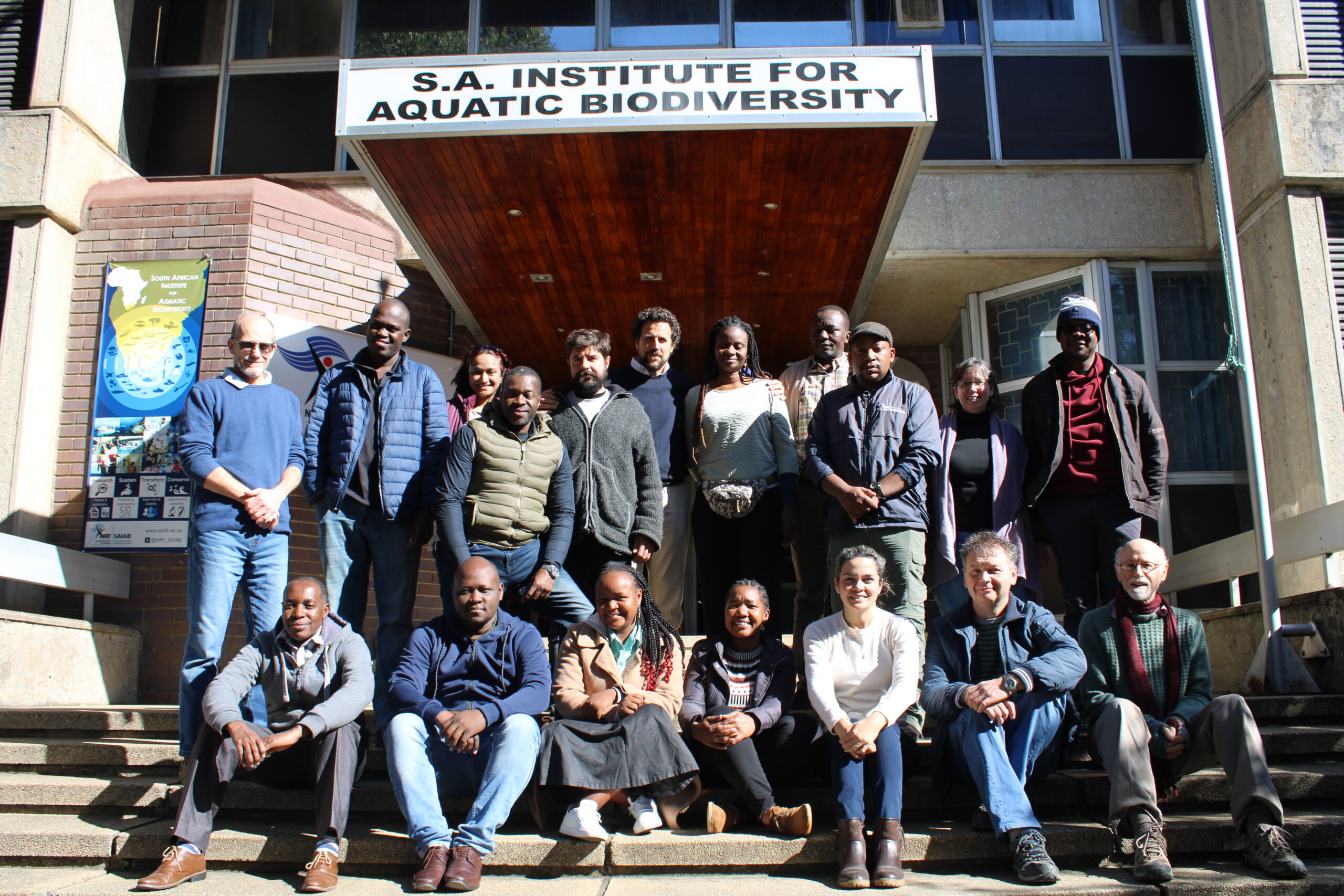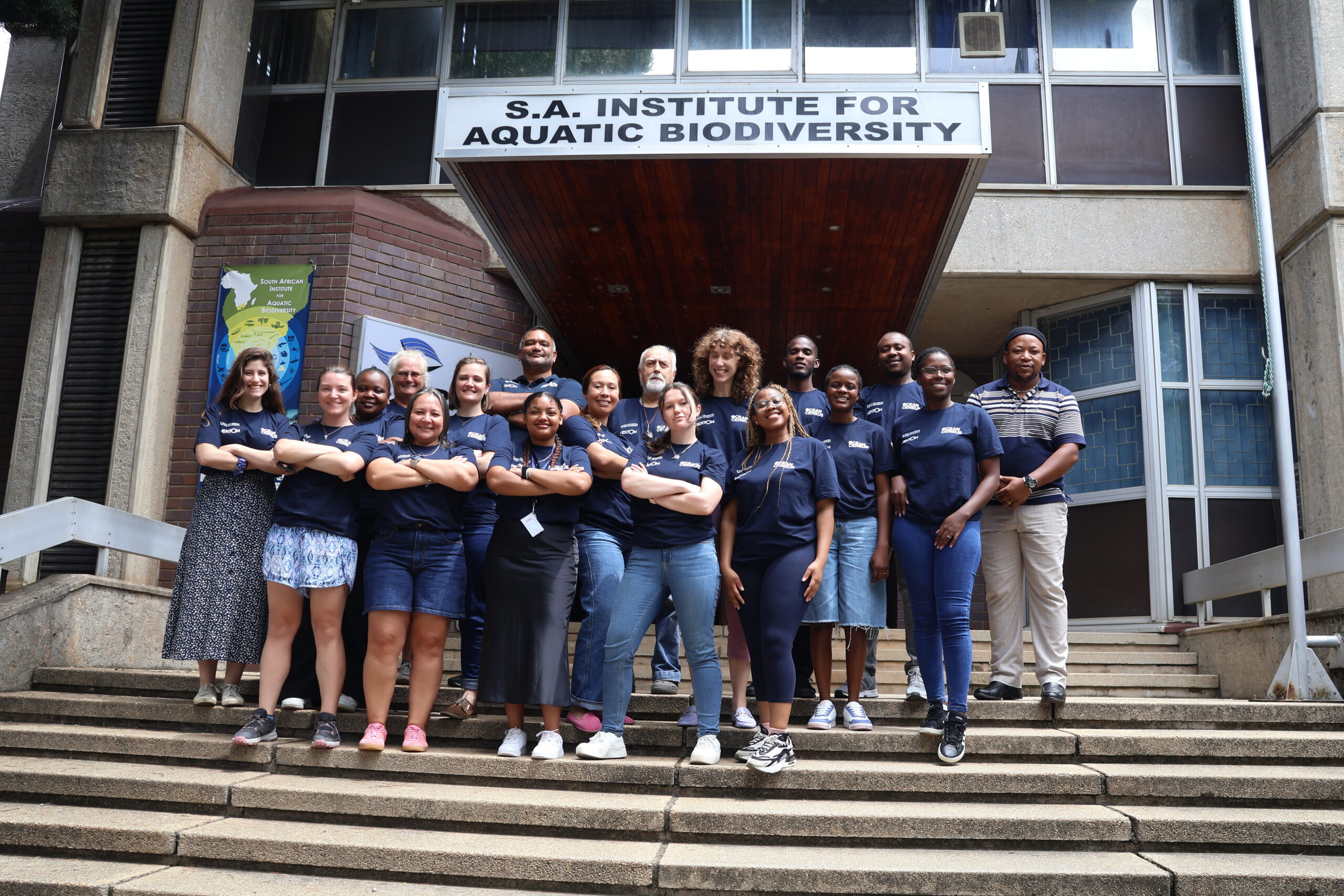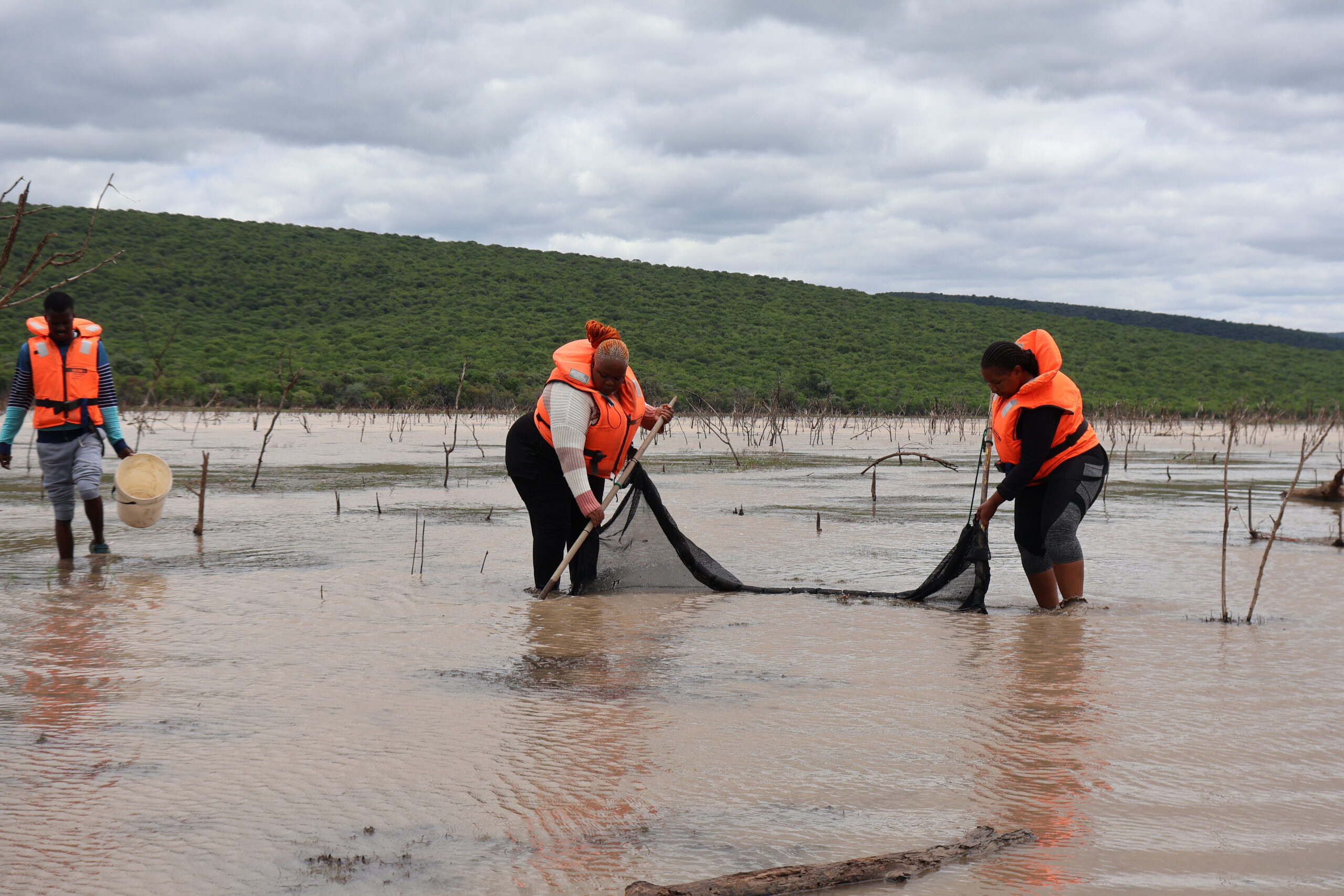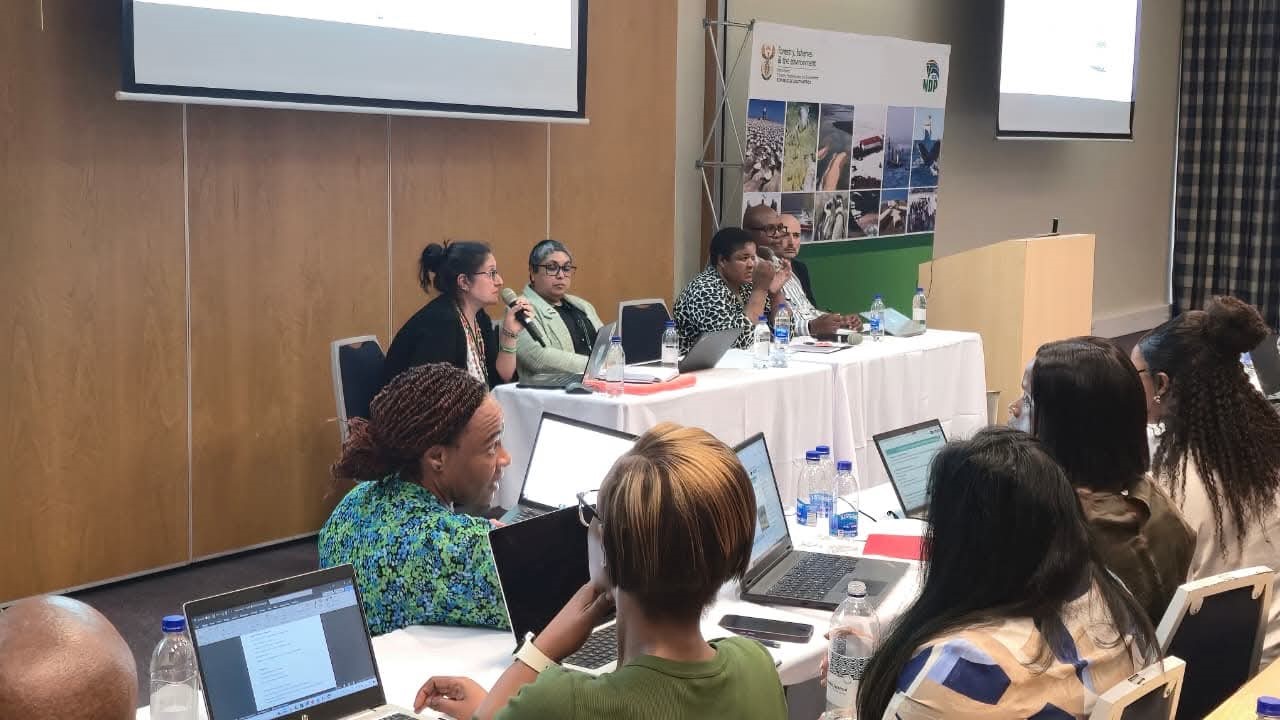By Siyamthanda Ndinisa & Mbali Ngulube
The South African Institute for Aquatic Biodiversity (NRF-SAIAB) and the Food and Agriculture Organization of the United Nations (FAO) partnered to launch a significant scientific research initiative aimed at developing local talent and leadership across Africa for the preservation of fish species. This collaboration highlights the critical importance of biodiversity and sustainable fisheries management for the continent.
The EAF-Nansen Programme Post-Survey Workshop on Fish Taxonomy Research, hosted at the NRF-SAIAB Institute in Makhanda, brought together ten selected fish biology and taxonomy scientists from Mozambique, Kenya, and Tanzania for advanced training over 10 days. This initiative is part of the EAF-Nansen Programme, which supports “regional and country-specific efforts to reduce poverty, improve food security, and achieve sustainable fisheries management systems”.
Expert trainers from NRF-SAIAB, FAO, Iziko South African Museum, and the University of Cape Town provided comprehensive guidance during the workshop. NRF-SAIAB Senior Curator, Roger Bills explained the workshop’s objectives of “focusing on training fisheries officers and scientists already employed in the EAF-Nansen programme in Kenya, Tanzania, and Mozambique. The goal is to elevate their training, including species collection, field identification, and higher-level identification methods such as genetic analysis, photography, morphological measurements, and scientific paper writing.”
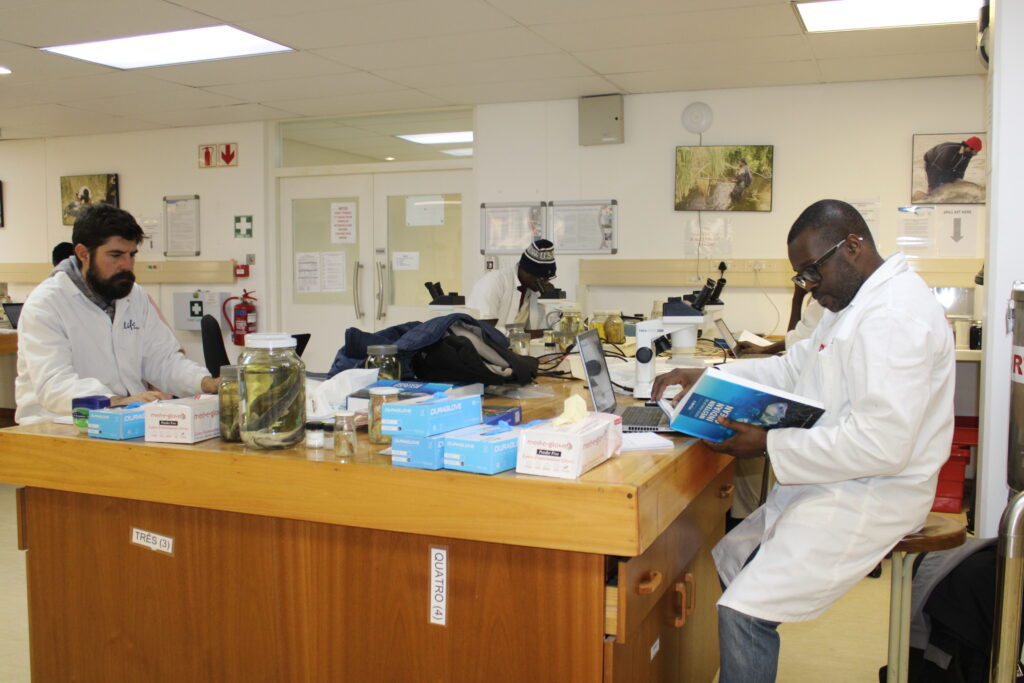
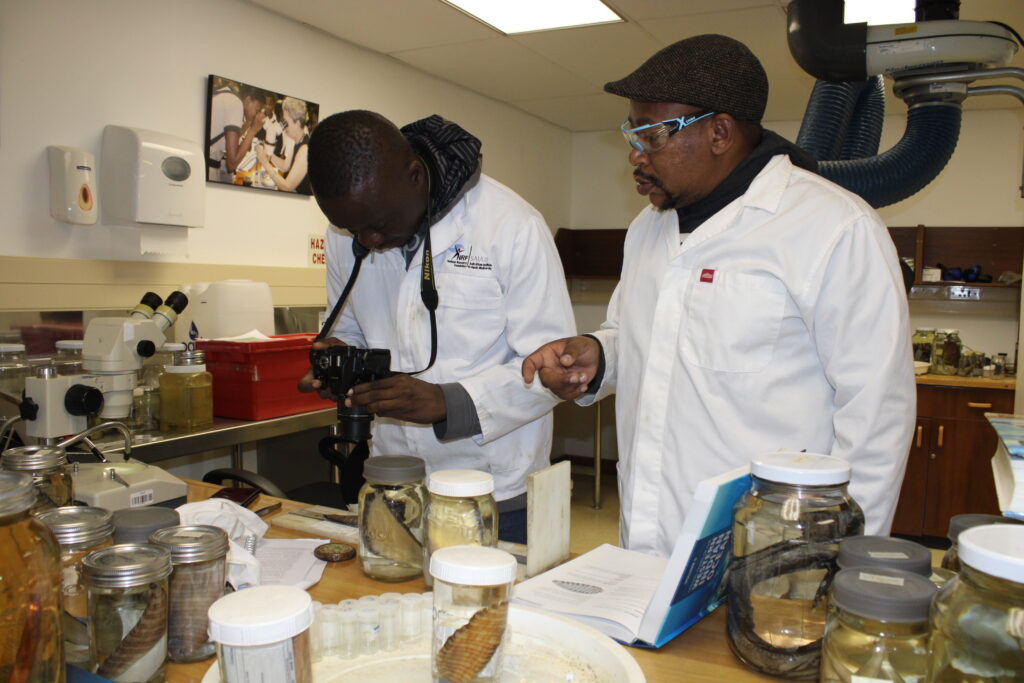
NRF-SAIAB team working with the participants in their respective groups
Roger attributed the workshop’s success to the resources unique resources available at NRF-SAIAB, mentioning that “It’s difficult to find a place with so many resources and experts. We have a fantastic collection of specimens for comparison, a great collections team with X-ray and photographic facilities, an extensive library, and a top-notch genetics laboratory for sample analysis and creating genetic trees.”
FAO Fish Taxonomist and workshop leader, Dr. Peter Psomadakis, discussed the origins of the collaboration explaining that; “A few years ago, during the Dr. Fridtjof Nansen Festival, part of the EAF-Nansen Programme, we conducted surveys at sea and collected specimens. We needed an institute to preserve these specimens, so I contacted NRF-SAIAB to explore a partnership. That’s where our collaboration began.”
Dr. Psomadakis highlighted the expected outcomes for the participating countries, that: “Fish taxonomy research is lacking in Africa. Our aim is to join forces – FAO with its research vessel and 32 partner countries, and NRF-SAIAB with its expertise and human resources, to make SAIAB a reference institute for building capacity in fish taxonomy and advancing fish taxonomy research.”
Organising the workshop involved significant scientific and technical preparation, including selecting relevant taxa for scientific publications and choosing suitable specimens for research. Participants were divided into five groups, each consisting of two participants and two supporting experts, and assigned taxonomic projects. Each team was expected to deliver on their programmed objectives by the end of the workshop.
Godfrey Fabiani Rusizoka, a Research Officer at the Tanzania Fisheries Research Institute, shared his positive experience: “It was my first time at NRF-SAIAB. The workshop was well-organised, and we were taught how to identify fish, the preservation procedures step by step, and how to identify new species.”
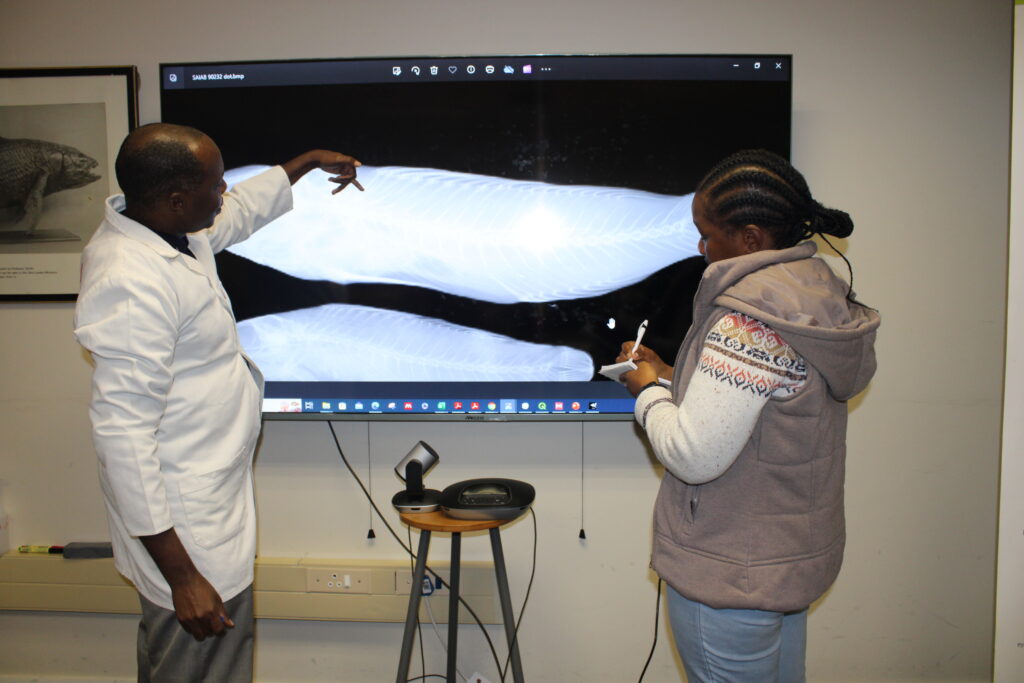
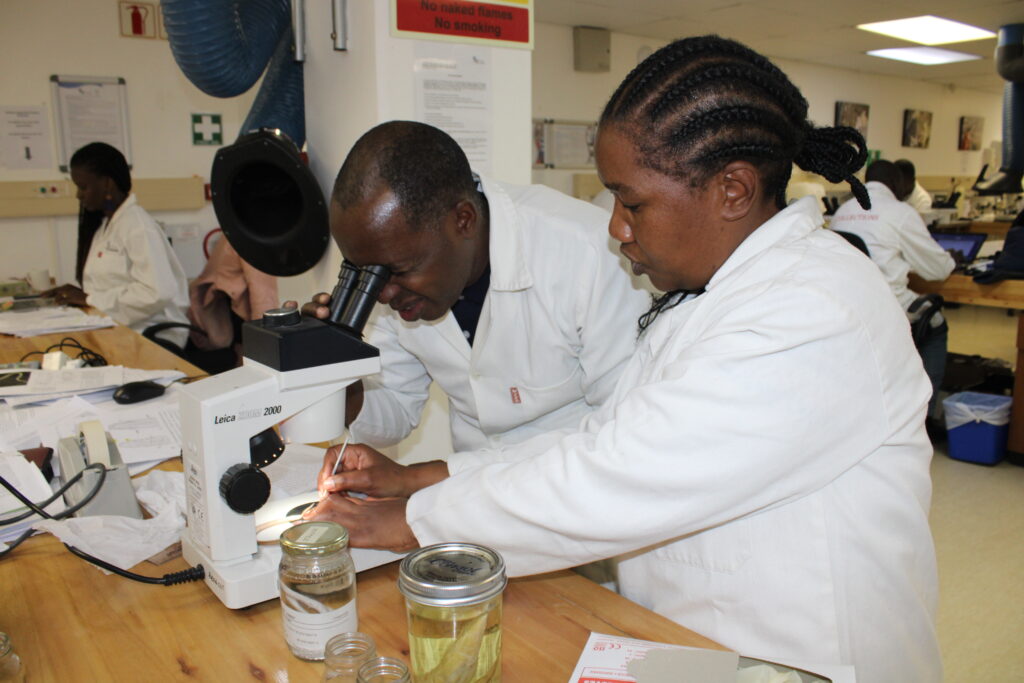
Godfrey Fabiani Musizoka working with NRF SAIAB Postdoctoral Researcher Dr Yonela Sithole
Julia Sitoe from Mozambique described her experience as “spectacular”, further sharing that; “We were surrounded by experts with extensive experience. The most interesting aspect for me was working in the Genomics Laboratory. I have a greater appreciation for molecular biology, and learning about the importance of genetics and morphological analysis was fascinating.”
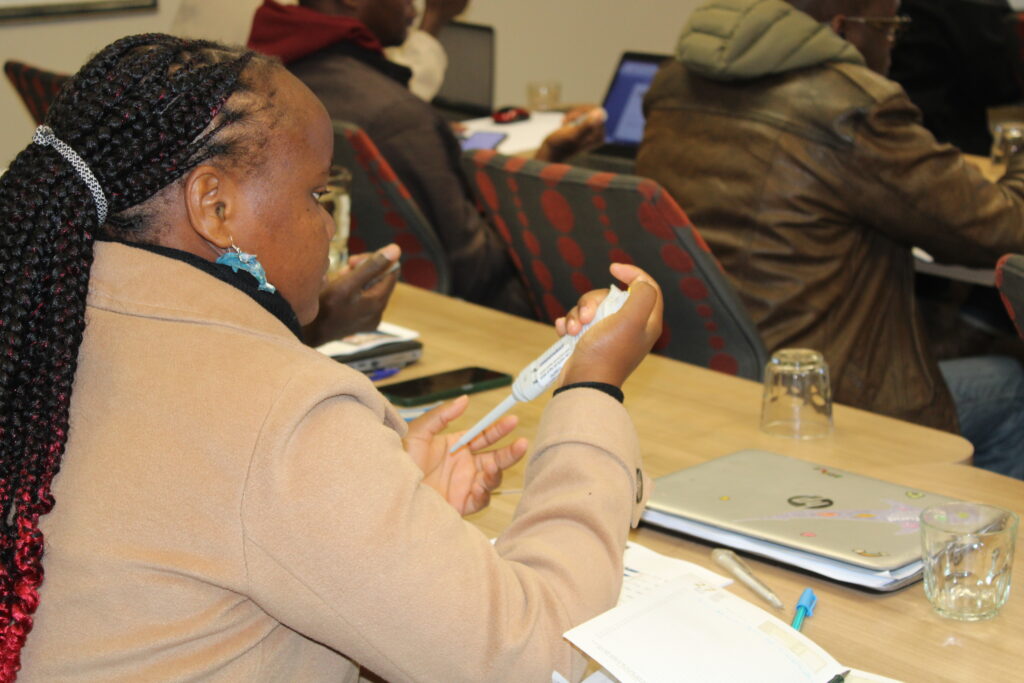
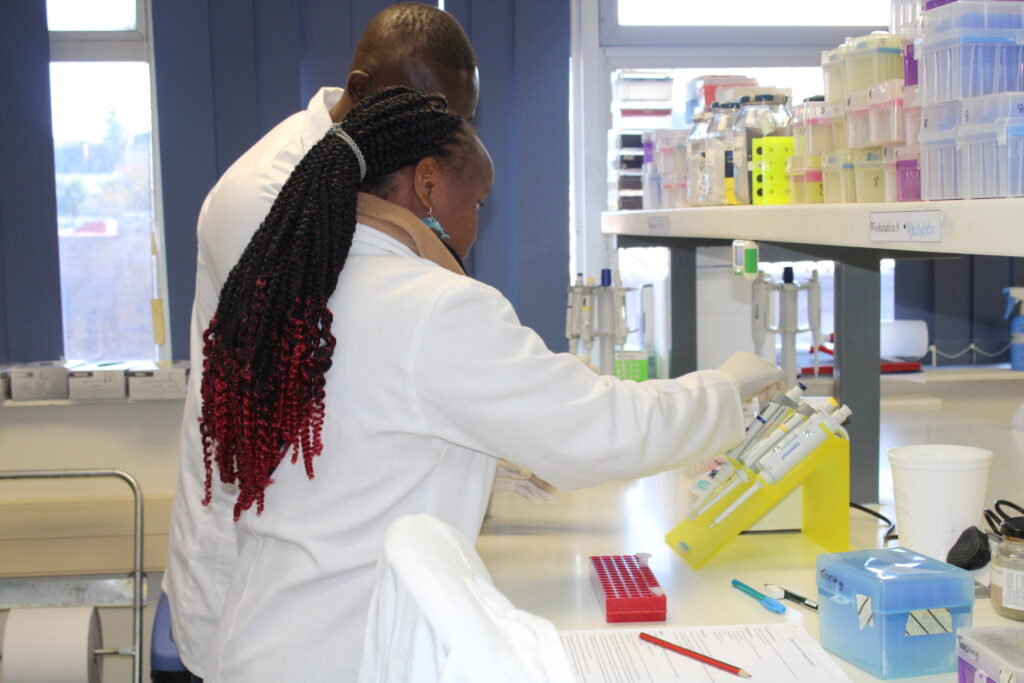
On the left; Julia Sitoe in the fundamentals of molecular biology presentation. On the right; Julia Sitoe implementing the theory of the fundamentals of molecular biology into practice
The immediate outcomes of the workshop include research papers that will aid in species management within the participating countries. By identifying the species present, scientists can better manage them. In the longer term, the workshop will build capacity among scientists, enabling them to conduct fish taxonomy research independently in the future. By developing local talent and leadership, NRF-SAIAB and FAO are paving the way for a sustainable future for Africa’s fisheries, ensuring the preservation of fish species and the well-being of the communities dependent on them.
